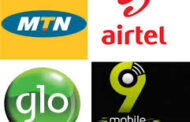Nigeria has been ranked number one in Africa and eight in the world in terms of internet usage with about 63 million internet users in the country.
This fact was disclosed by digitalfacts: Nigeria, West & Central Africa, a second edition publication by digitXplus.
According to the book, 15 countries have the highest number of internet users in the world including China (632 million); USA (269 million); India (198 million); Japan (110 million); Brazil (105 million); Russia (87 million); Indonesia (83 million); and Germany (68 million). Others are: Nigeria (63 million); UK (57 million); France (54 million); Mexico (52 million); Iran (49 million); Egypt (43 million) and South Korea (42 million).
The publication revealed that since 2011, Nigeria has maintained a steady upward trend in the number of internet users, stating that from 35.7 million, the figure increased to 42.8 million; 51.8 million; 57.7 million and 63.2 million internet users in 2012, 2013, 2014 and 2015 respectively.
The publication puts the total number of internet users worldwide at 3.2 billion as at December 2015, representing a whopping increase of 8.9 per cent over 2.9 billion internet users recorded at the end of 2014.
Based on the regional statistics contained in the publication, Asia-Pacific had 1.6 billion internet users as at December 2015, while North America, Latin America, Western Europe, Central/Eastern Europe and Middle East/Africa boasted of 288 million; 325 million; 310 million; 238 million and 429 million in that order.
The publication also revealed that the Nigerian telecom sector, one of the largest in Africa, is driven almost completely by mobile telephony.
“Rapid expansion of the wireless networks and competition has driven down voice tariffs and made basic cellular services affordable, especially for the poorer rural consumers.”
Commenting, Chief Executive Officer, digitXplus, Patrick Gomes, said most of the access to internet in the region is through mobile devices. He said Facebook in the West and Central Africa is almost 50 million monthly active users, adding that the numbers speak about the size and strength of digital as a medium, which continues to grow year on year.
The report acknowledged that the relatively affluent urban middle classes increasingly enjoy 3G and 4G LTE services, adding that consumers face issues pertaining to service quality and network congestion while religious extremism in the North of the country has affected infrastructure investments.
“The fixed-line network is weak and fixed-broadband penetration is very low in large parts of the country. The government has, however, come out with a National Broadband Plan, which aims to increase 3G and fixed-broadband coverage by 2018, helped by an expanding fibre-optic network. A proliferation of local online marketplaces and higher internet penetration in cities have resulted in strong growth in e-commerce transactions,” the book stated.
-The Sun














